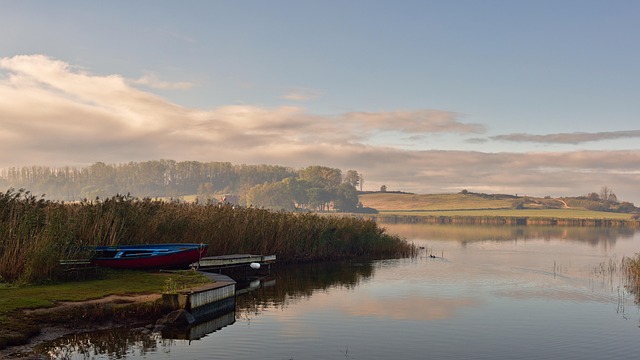Karachi, Pakistan's economic powerhouse, has witnessed a remarkable evolution in investigative journalism, driven by public demand for in-depth exposés on corruption and human rights abuses. The city's media scene transformed dramatically in the late 20th century, embracing digital tools that accelerated investigations and empowered journalists to uncover systemic issues. Today, Karachi's bustling urban environment leverages digital platforms for fact-checking, source engagement, and telling visual stories, reshaping public discourse. Trends like data journalism and interactive infographics further enhance understanding of complex problems, while the city's diverse culture necessitates nuanced storytelling. Despite challenges, the future of investigative journalism in Karachi is promising, balancing technology with ethics to strengthen democracy locally and globally.
The vibrant city of Karachi, Pakistan, has witnessed a metamorphosis in investigative journalism over its historical landscape. From traditional print media to the digital age, the dynamics of uncovering truths have evolved significantly. This article delves into the changing practices within Karachi’s media scene, exploring the impact of technology on investigative reporting. We analyze emerging trends such as data journalism and visual storytelling while shedding light on the challenges and ethical considerations faced by reporters in modern Karachi, offering insights into its future prospects.
- The Evolution of Investigative Journalism in Karachi: A Historical Perspective
- Digital Revolution and Its Impact on Investigative Reporting Practices
- Emerging Trends: Data Journalism and Visual Storytelling in Karachi
- Challenges and Ethical Dilemmas Confronting Investigative Reporters in Modern Karachi
- Future of Investigative Reporting: Opportunities and Threats in a Changing Media Landscape
The Evolution of Investigative Journalism in Karachi: A Historical Perspective

Karachi, as Pakistan’s economic hub and a bustling metropolis, has witnessed a remarkable evolution in investigative journalism over the years. Historically, the city’s media landscape was characterized by a more traditional approach to news reporting, with a focus on daily events and basic information dissemination. However, as time progressed, a shift occurred, paving the way for a dynamic and robust investigative journalism scene. The late 20th century saw a surge in the demand for in-depth, fact-based reporting, leading to a series of breakthroughs in uncovering corruption, exposing human rights abuses, and holding powerful entities accountable in Karachi.
This transformation was catalyzed by the growing awareness of the public’s right to information and the city’s complex social and political dynamics. Journalists embarked on ambitious investigations, navigating through a labyrinthine network of interests, which often required courage and perseverance. The efforts of these trailblazing reporters have left an indelible mark on Karachi’s media culture, setting a precedent for comprehensive and impactful investigative pieces that continue to shape public discourse in the region.
Digital Revolution and Its Impact on Investigative Reporting Practices

The digital revolution has undeniably transformed investigative reporting practices globally, including in vibrant cities like Karachi. Traditional media houses are now navigating a landscape where online platforms and social media play pivotal roles in information dissemination. This shift has empowered journalists in Karachi to access vast databases of public records, conduct real-time fact-checking, and engage directly with sources and audiences alike.
The speed and reach of digital tools have accelerated the investigative process, enabling journalists to uncover complex web of corruption, criminal networks, and human rights abuses more efficiently. In Karachi, where hustle and bustle defines urban life, digital platforms allow reporters to connect with diverse communities, uncover hidden stories, and expose systemic issues. This evolution in reporting practices is reshaping public discourse, holding powerful entities accountable, and fostering a more informed citizenry in the digital age.
Emerging Trends: Data Journalism and Visual Storytelling in Karachi

In recent years, Karachi has witnessed a significant shift in investigative reporting dynamics, driven by emerging trends like data journalism and visual storytelling. Journalists are increasingly leveraging advanced analytics and visualization tools to uncover complex narratives, making intricate data accessible and compelling for audiences. This transformation is particularly evident in the city’s vibrant media landscape, where traditional text-based reports are being supplemented with interactive infographics, maps, and charts that bring stories to life.
Karachi’s investigative reporters are utilizing open-source intelligence, public records, and social media data to construct comprehensive datasets, which they then employ to expose corruption, urban planning issues, and other societal challenges. Visual storytelling allows them to present these complex findings in a digestible manner, engaging readers and fostering a deeper understanding of the city’s problems. As a result, residents are better equipped to participate in public discourse, demanding transparency and accountability from their elected representatives.
Challenges and Ethical Dilemmas Confronting Investigative Reporters in Modern Karachi

Karachi, as Pakistan’s economic powerhouse and a bustling metropolis, presents unique challenges for investigative reporters. The city’s intricate web of political, business, and criminal networks often obscures the truth, making it difficult to uncover corruption and expose wrongdoings. Modern technology, while enhancing research capabilities, also raises ethical dilemmas; digital evidence requires careful verification to avoid misinformation.
Additionally, Karachi’s diverse cultural landscape and shifting social dynamics impact storytelling. Reporters must navigate sensitive topics like ethnic tensions, poverty, and gender issues with nuance, ensuring their work is accurate and unbiased. The city’s dynamic nature demands constant adaptation in research methods and storytelling techniques, testing the skills of investigative journalists in this fast-paced environment.
Future of Investigative Reporting: Opportunities and Threats in a Changing Media Landscape

The future of investigative reporting in cities like Karachi is filled with both opportunities and threats, reflecting a broader trend in the changing media landscape. As digital technologies continue to evolve, journalists now have unprecedented access to data and tools that can expose corruption, uncover stories hidden from public view, and engage audiences in real-time. Online platforms allow for faster dissemination of information, enabling citizens to participate actively in the news cycle. This democratization of information has the potential to strengthen local journalism, giving voice to marginalized communities and holding powerful entities accountable in Karachi, just as it has across the globe.
However, this shift also presents challenges. The rise of fake news and misinformation poses a significant threat, making it crucial for investigative reporters to hone their fact-checking skills and rely on credible sources. Changing media habits among audiences, with a growing preference for bite-sized content, demand that stories be presented in innovative formats. Additionally, the economic pressures on traditional media outlets require journalists to adapt and explore alternative funding models to sustain high-quality investigative work. Success will hinge on reporters’ ability to embrace new technologies while maintaining rigorous ethical standards, ensuring that the practice of investigative reporting remains a vital pillar of democracy in Karachi and beyond.
The dynamic nature of investigative reporting in Karachi has evolved significantly over time, adapting to technological advancements and societal changes. The digital revolution has not only transformed news consumption but also revolutionized reporting practices, enabling journalists to uncover truths with unprecedented efficiency. As Karachi navigates an ever-changing media landscape, emerging trends like data journalism and visual storytelling are enhancing the depth and impact of investigative pieces. However, reporters face numerous challenges and ethical dilemmas in their pursuit of truth, demanding a delicate balance between innovation and integrity. By embracing opportunities while mitigating threats, the future of investigative reporting in Karachi promises to remain a powerful force, shedding light on issues that shape the city’s narrative.
